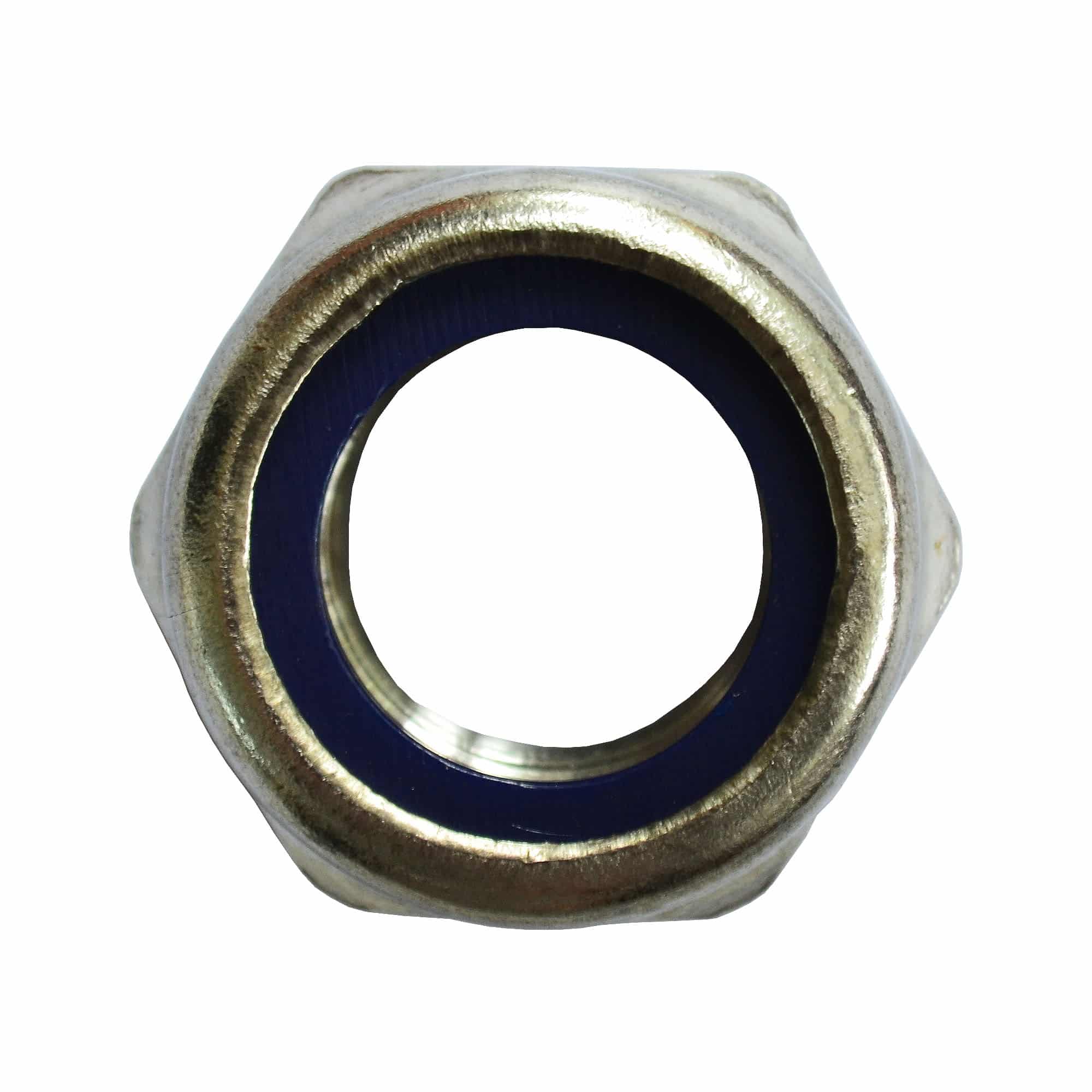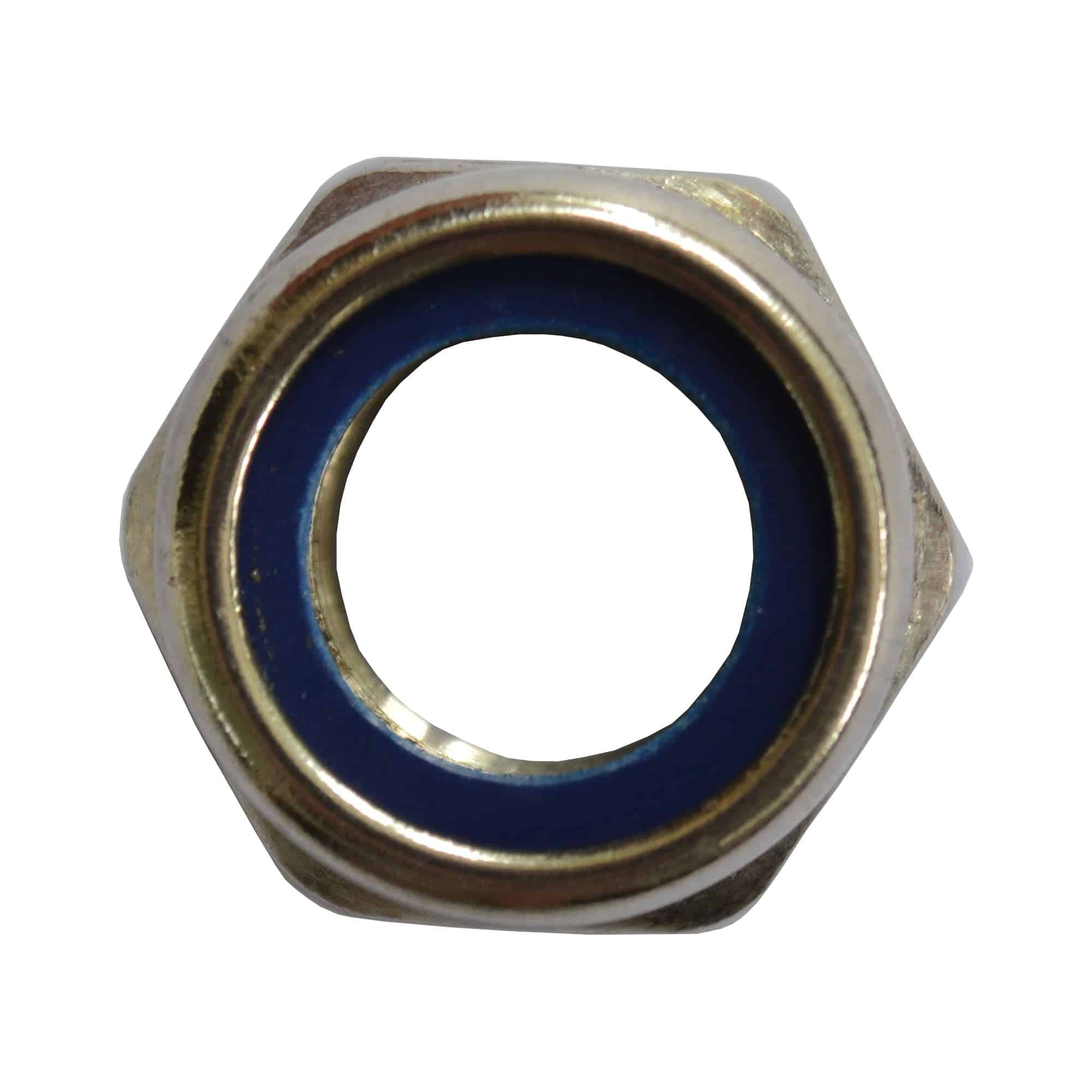- Massive Range
- FREE UK Delivery
- Rapid Dispatch
- Massive Range
- FREE UK Delivery
- Rapid Dispatch
- Massive Range
- FREE UK Delivery
- Rapid Dispatch
£13.50 – £260.40 inc VAT

Secure payments taken with:

This website is secured:
£ MULTIBUY SAVINGS – Order 3 For 10% Off
✔ Specialists In Rapid Shipments Of Any Size
✔ FREE UK Delivery Included
✔ Immediate Express Dispatch From Stock
✔ Tracked Delivery with Order Updates
✔ 30-Day Returns Accepted
@ ☏ Larger Pack Quantities Available
Everyone knows how frustrating it can be to have to constantly tighten bolts and nuts that keep coming loose. But with M20 Nyloc Nuts, you don’t have to worry about that anymore! These self locking nuts from Speciality Metals are made with durable A4 Grade 316 material that is not only long-lasting, but also resistant to corrosion. Whether you need to secure something in a harsh marine environment or just want something that requires low maintenance, these versatile nuts are the way to go. Plus, with their secure locking mechanism, you can trust that they’ll stay put where you need them. Say goodbye to loose bolts and hello to M20 Nyloc Nuts!

Top quality stainless steel Nyloc nylon self locking nuts supplied straight from Warrington, UK.
Speciality Metals offer a massive range of metal products to suit all levels of budget and any size of job. These nuts are offered to compliment our range of nuts, bolts & washers. We pride ourselves on our low prices and rapid fulfilment. Our fasteners are available from immediate stock, so dispatch would be fair immediate.
We offer high-quality Nyloc Nut Nylon Self-Locking Nuts made from A4 Grade 316 Grade materials at Specialty Metals. Its durability, versatility, and low maintenance make it an excellent choice. The main advantage of self-locking nuts is that they are extremely secure and will not loosen due to vibrations. These nylon nuts are also corrosion-resistant, therefore they are ideal for marine environments. Speciality Metals is the go-to source for self-locking nuts that can withstand tough conditions, thanks to its reputation for high-quality products and great customer service.
Key product details:
Speciality Metals is known to be the United Kingdom’s best up-and-coming small-quantity metal company.
Furthermore we stock a vast range of plain wire mesh and perforated metal options that compliment our sheet metal range perfectly.
Over 50,000 customers of Specialty Metals are provided with fast, friendly customer service every year. We’re the place to try when you need metal of any shape and size. We’re based in Warrington, UK. We pride ourselves on our rapid turnaround and a large range of options.
Self-locking nuts, depending on their material composition, can conduct electricity. For example, those made from metals like steel, stainless steel or aluminum have conductive properties. However, the presence of a non-metallic insert in some types of self-locking nuts, such as nylon lock nuts (Nyloc nuts), can impede the electrical pathway. It’s important to note that the conductivity also depends on the integrity of the contact surfaces, which can be affected by factors like corrosion or surface coatings. While the metallic part may conduct electricity, the presence of a nylon or other non-conductive insert will likely disrupt a full electrical connection. Therefore, self-locking nuts should not be relied upon as electrical connectors unless they are specifically designed and certified for such applications. If electrical conductivity is a critical requirement for your application, it’s essential to consult the manufacturer’s specifications and possibly engage with engineering experts to select the most suitable type of nut.
Yes, self-locking nuts are generally recyclable, but their recyclability depends on the material from which they are made and the recycling facilities available. Metal parts of the nut, usually made from steel, stainless steel, or aluminum are commonly recyclable. These materials can be melted down and reformed into new products. However, the nylon or other non-metallic inserts found in some types of self-locking nuts (like Nyloc nuts) are not as easily recycled as the metal components.
If you’re considering recycling self-locking nuts, it’s best to separate the metal parts from any non-metallic inserts to streamline the recycling process. Some specialised recycling facilities may be capable of separating the materials themselves, but this isn’t universally true. Always check with your local recycling facility to understand what types of materials they can process and whether they can handle composite materials like self-locking nuts with non-metal inserts.
In industrial settings, bulk quantities of self-locking nuts are often collected for recycling, and specialised facilities may handle the separation and recycling process as part of their services. Nonetheless, the recyclability of self-locking nuts ultimately depends on their material composition and the capabilities of the recycling facilities.
Yes, self-locking nuts can be used with plastic components, but there are some important considerations to keep in mind to ensure a secure and durable connection:
Material Compatibility: Make sure that the self-locking nut material is compatible with the plastic to avoid issues like galvanic corrosion or chemical reactions that could weaken the assembly.
Load Distribution: Plastic materials are generally less rigid and may deform under pressure. When using a self-locking nut, consider using a washer to distribute the load evenly across the plastic component.
Temperature Sensitivity: Both plastic and the non-metallic insert in some self-locking nuts (e.g., Nyloc nuts) are sensitive to temperature changes. Make sure the materials used can withstand the operating temperatures of your application.
Vibration and Stress: Self-locking nuts are often used in applications where vibration is a concern. Ensure the plastic material can withstand the forces involved without cracking or deforming.
Thread Engagement: When fastening into plastic, make sure that the threads are well-engaged for a secure fit. Self-locking nuts often require more torque to disengage than standard nuts, so ensure the plastic can withstand this without stripping the threads.
Expert Consultation: For critical applications, it may be advisable to consult with a materials scientist or engineer to ensure that the self-locking nut is appropriate for use with the specific type of plastic.
Self-locking nuts generally do not come with a specific expiry date, but their effectiveness can degrade over time due to various factors like environmental exposure, mechanical stress or repeated use. Materials like nylon, used in Nyloc nuts, can degrade with exposure to ultraviolet light, heat or chemicals. Similarly, the metal components may corrode depending on their material and the environmental conditions to which they are exposed. Frequent loosening and tightening can also diminish the locking capability of self-locking nuts. For critical applications, especially those involving safety, it’s crucial to inspect these nuts regularly and replace them as needed based on their condition rather than age. Manufacturer guidelines may offer more specific recommendations for replacement intervals, and some industries have regulations or best practices that dictate the lifespan of such components.
Check out our recent article ‘Unlocking the Benefits of Nyloc Nuts: The Ultimate Guide‘ for a deeper dive into nyloc nuts. Our goal for our blogs and help guides is to answer as many questions as possible to help to explain the possibilities of mesh to our customers.
We are also very proud of our ever expanding YouTube channel.
Contact us today if you have any questions at all. We are always really keen to help in any way that we can.
We are also very proud of our highly popular eBay store, check us out there too.
Thank you for checking out our product.
£13.50 – £260.40 inc VAT

£13.50 – £260.40 inc VAT

Speciality Metals
Unit 1, Farrell Street, Warrington,
Cheshire, WA1 2WW, United Kingdom
Quick Links
Payment Options
